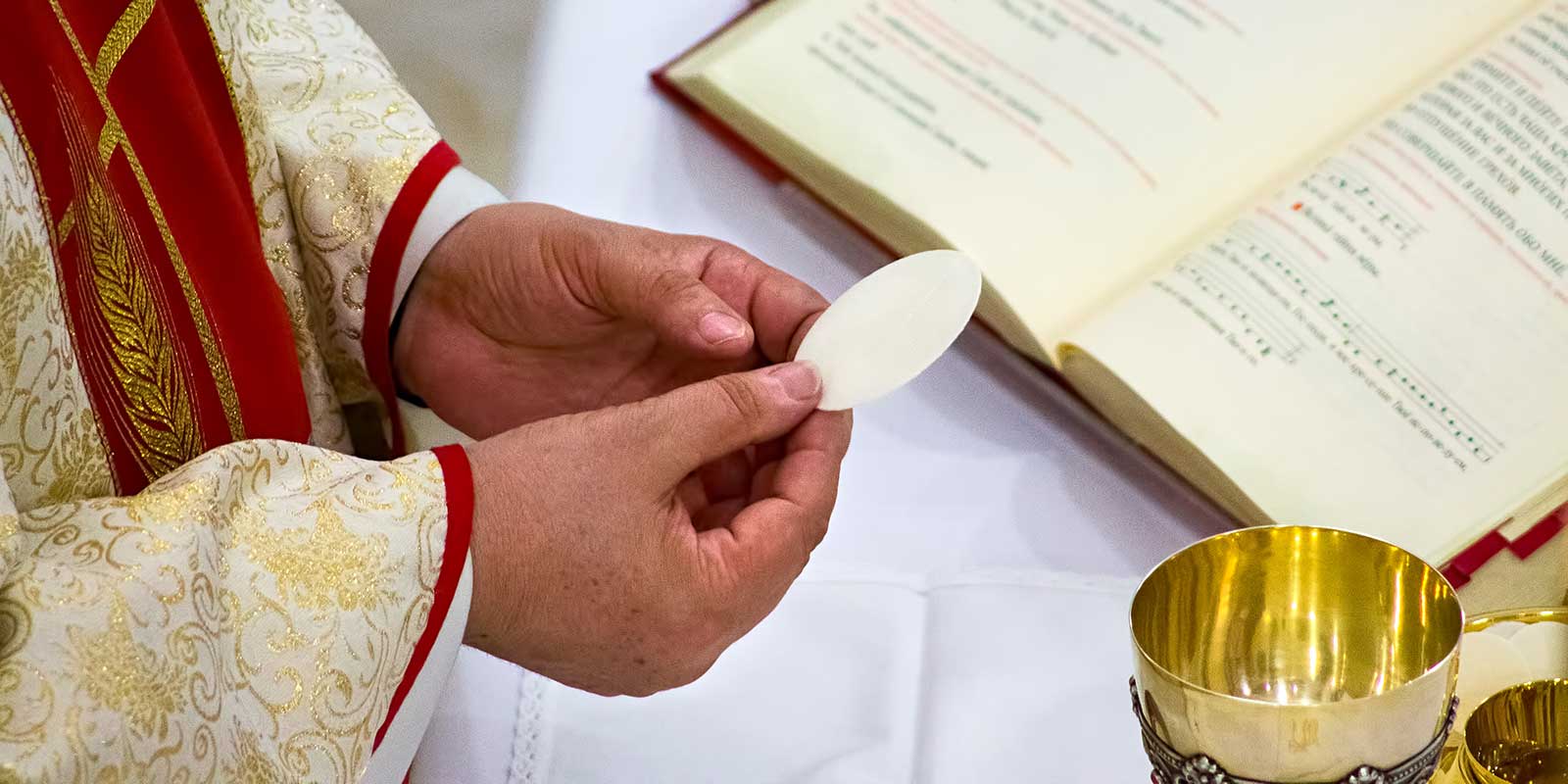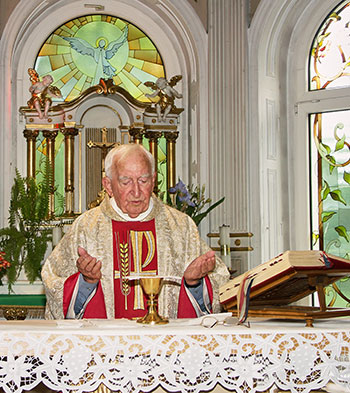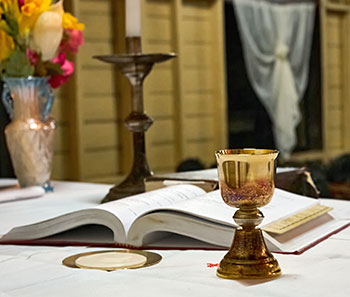
The Value of the Eucharist
The Catholic Church regards the Eucharist as "the source and summit of the Christian life," viewing it as a spiritual wellspring that nourishes our faith and honors God. It represents both the foundation and the pinnacle of all apostolic efforts, symbolizing the connection between humanity and the divine.
 By participating in the Mass, believers join in Christ's sacrifice, connecting with the Paschal Mystery that unites us with God and one another, as highlighted in 1 Corinthians 10:17. Each Eucharistic celebration unfolds the entirety of redemption, allowing believers to engage profoundly with Christ's Passion, Death, and Resurrection, transcending the boundaries of time and eternity (Catechism, 1085).
By participating in the Mass, believers join in Christ's sacrifice, connecting with the Paschal Mystery that unites us with God and one another, as highlighted in 1 Corinthians 10:17. Each Eucharistic celebration unfolds the entirety of redemption, allowing believers to engage profoundly with Christ's Passion, Death, and Resurrection, transcending the boundaries of time and eternity (Catechism, 1085).
Every Mass is an opportunity to encounter boundless grace, capable of redeeming all sinners with just a single drop of Christ’s Precious Blood, as noted by St. Faustina. During the Mass, the community presents itself in unity with Jesus Christ, who offers Himself to the Father through the Holy Spirit. However, the transformative power of the Eucharist depends on the disposition of the faithful. Vatican II highlighted that for the Liturgy to reach its full spiritual potential, participants must come with the right attitude and openness to divine grace (Constitution on the Sacred Liturgy, 11). This readiness is essential for receiving the blessings that God intends to share during the Mass.
A visionary from Bolivia shared a remarkable experience during Mass, where guardian angels brought offerings to the altar. Some angels held golden bowls filled with light, symbolizing the hearts and intentions of those who were actively engaged in the celebration. Others, with empty hands, represented those who contributed nothing, while some angels appeared sorrowful, reflecting individuals who attended out of obligation rather than genuine interest. This vision highlights the significance of fully participating in the Mass, presenting our sorrows, hopes, and joys to God.
The Blessed Mother stressed the importance of actively offering ourselves and our intentions during Mass, transforming our lives into a living sacrifice united with Christ's merits, which is pleasing to the Father. St. Faustina noted Jesus' guidance to meditate on His Passion, urging believers to connect their own sufferings with His, thus giving them infinite value (Diary, 1512).
 The Eucharist calls us to change our daily lives by carrying the spiritual essence of the Mass beyond its liturgical context. Through the Chaplet of Divine Mercy and ongoing prayer, believers extend the redemptive work of Christ’s Passion into their everyday lives, aligning themselves with the royal priesthood granted to them through baptism.
The Eucharist calls us to change our daily lives by carrying the spiritual essence of the Mass beyond its liturgical context. Through the Chaplet of Divine Mercy and ongoing prayer, believers extend the redemptive work of Christ’s Passion into their everyday lives, aligning themselves with the royal priesthood granted to them through baptism.
The Eucharist serves not only as a remembrance of Christ’s sacrifice but also actively involves the Church, His Body, in the offering (Catechism, 1368). When believers participate in the Eucharist, they join in Jesus' ongoing offering to the Father, giving new significance to their lives, struggles, and victories. This collective offering transforms the global church, connecting it with Christ's eternal sacrifice.
As the foundation and pinnacle of Christian life, the Eucharist invites believers to continually offer themselves in gratitude, following the example of St. Faustina, whose devotion infused her entire life. This sacrificial way of living becomes a constant liturgy of praise and adoration, reflecting the mysteries of faith that unfold during each Mass.
The incredible gift of the Eucharist remains a source of divine love and mercy, encouraging believers to fully embrace its transformative power and share it with the world. In doing so, the faithful become a living Eucharist, a thanksgiving in action, welcoming God’s mercy while extending it to others.
Discover more about the Eucharist:

Donate Today!
Your offering to Divine Word helps our missionaries bring the Gospel of Christ to the poor and forgotten around the world.